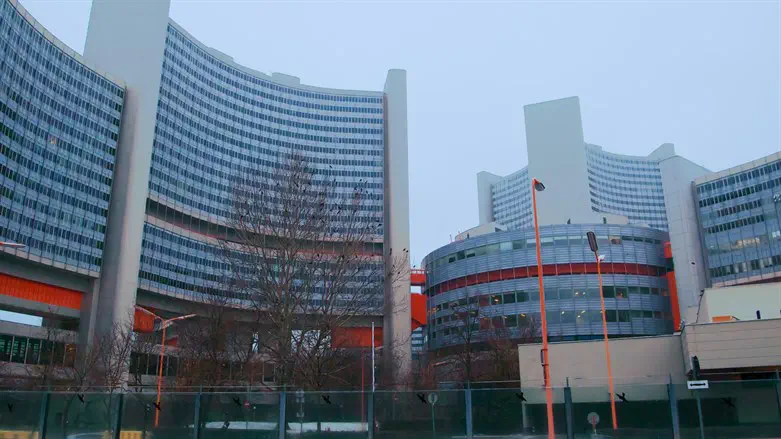
The UN nuclear watchdog, the International Atomic Energy Agency (IAEA), said Monday that it estimated Iran's stockpile of enriched uranium had grown to more than 18 times the limit laid down in the 2015 deal with world powers, AFP reported.
IAEA said in its latest report on Iran's nuclear program that it "estimated that, as of May 15, 2022, Iran's total enriched stockpile was 3,809.3 kilograms."
The limit in the 2015 deal was set at 300 kg (660 pounds) of a specific compound, the equivalent of 202.8 kg of uranium.
The report also says that Iran is continuing its enrichment of uranium to levels higher than the 3.67 percent limit in the deal.
The stockpile of uranium enriched up to 20 percent is now estimated to be 238.4 kg, up 56.3 kg since the last report in March, while the amount enriched to 60 percent stands at 43.1 kg, an increase of 9.9 kg.
Enrichment levels of around 90 percent are required for use in a nuclear weapon.
In a report released in March, the IAEA said Iran has defied Western powers by converting some of its uranium enriched to near weapons-grade into a form less easily recovered, diluted and shipped out of the country.
In a separate report also issued on Monday, the IAEA reiterated that it still had questions which were "not clarified" regarding previous undeclared nuclear material at three sites named as Marivan, Varamin and Turquzabad.
Last year, the IAEA found uranium particles at two Iranian sites it inspected after months of stonewalling.
Although the sites where the material was found are believed to have been inactive for nearly two decades, opponents of the 2015 nuclear deal Iran signed with world powers say evidence of undeclared nuclear activities shows that Iran has not been acting in good faith.
The report said Iran has offered the explanation of an "act of sabotage by a third party to contaminate" the sites, but added no proof had been provided to corroborate this.
The latest reports come as talks to revive the landmark 2015 nuclear deal between Iran and world powers remain deadlocked after stalling in March.
Iran scaled back its compliance with the 2015 deal, in response to former US President Donald Trump’s withdrawal from the agreement in May of 2018, but has held several rounds of indirect talks with the US on a return to the agreement.
Last week, US Special Envoy for Iran Rob Malley told lawmakers that the prospects for reaching a deal with Iran are “tenuous” at best.
Speaking to the Senate Foreign Relations Committee, Malley said the United States is ready to tighten sanctions and act with Israel and others to counter the Iranian threat if efforts to revive the 2015 Iran nuclear deal fail.
"We do not have a deal ... and prospects for reaching one are, at best, tenuous," said the envoy.
A day later, Iranian Foreign Minister Hossein Amir-Abdollahian accused Israel of “taking control” of United States policy, thus preventing a revival of the 2015 nuclear deal.


